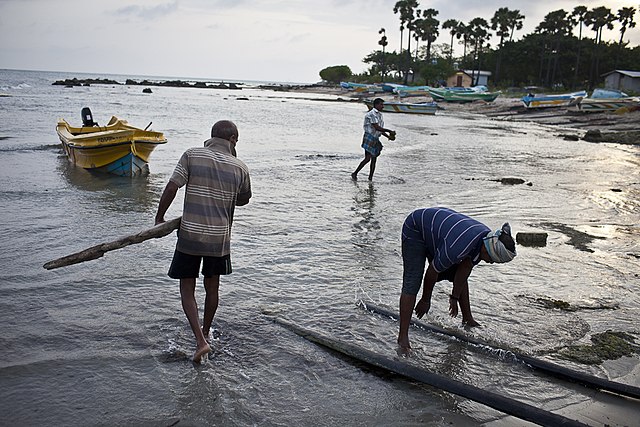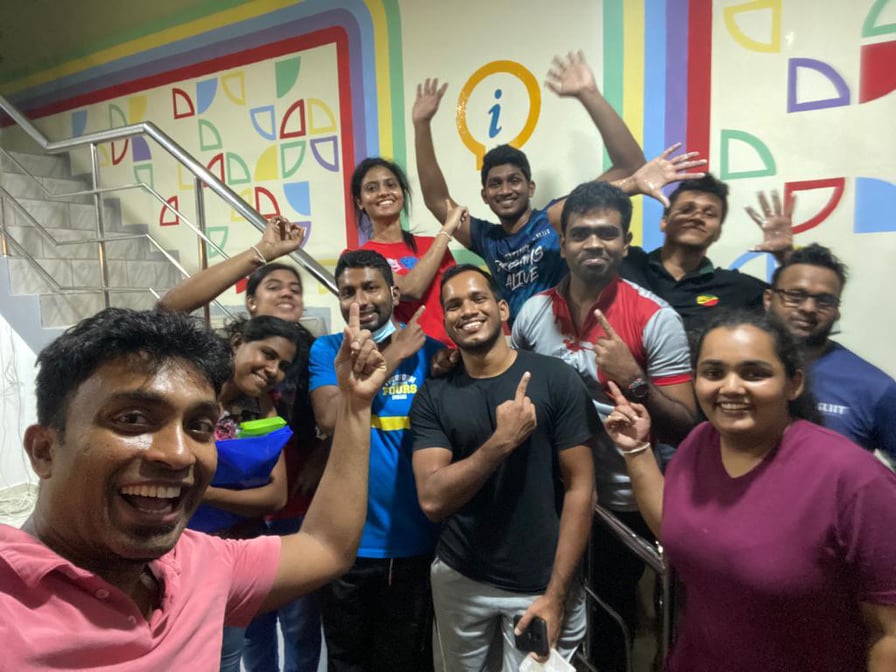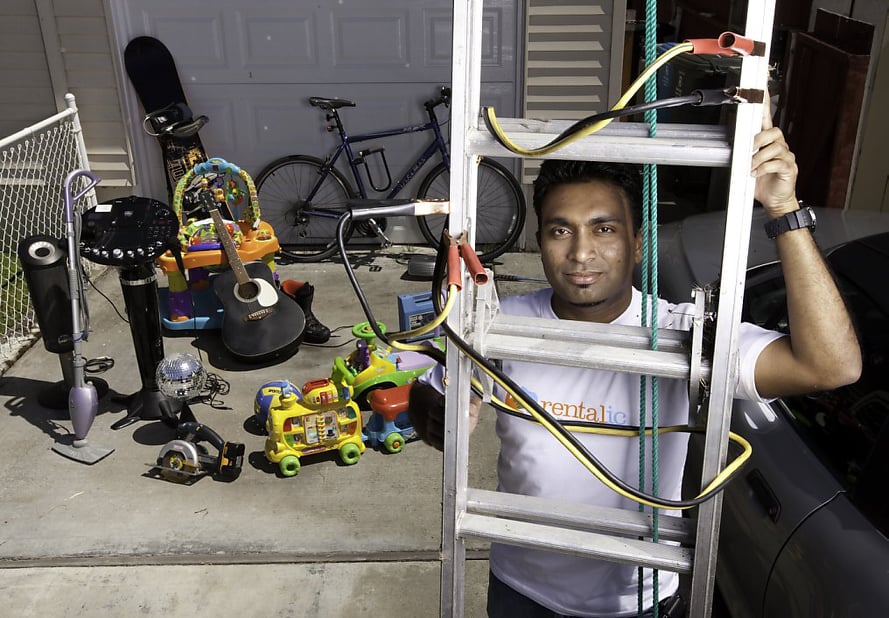In June 2008, Silicon Valley software engineer Punsri Abeywickrema was working in his San Mateo, California backyard. He needed a wheelbarrow. A wheelbarrow was sitting idle in his neighbor’s yard, but he didn’t want to ask to use it since he’d already used it several times before. He searched for a place nearby to rent a wheelbarrow, but didn’t have any luck. That was Abeywickrema’s eureka moment. A seed had been planted—one that would change the course of his life.

After graduating from the University of Wisconsin Superior in 2000, Abeywickrema worked for Oracle, PayPal, and then LinkedIn. In many ways, he was living the dream; he had a house in Silicon Valley and a job with a high-profile technology company–LinkedIn.
But change was in the air. Social networking was changing how people connected with one another, climate change was on everyone’s minds, and a global financial crisis was just around the corner. These factors would eventually lead Abeywickrema to found a company in the sharing economy, a trend that was just starting to heat up.
But in June 2008, all Abeywickrema wanted to do was borrow a wheelbarrow from his neighbor. This ordinary occurrence inspired Abeywickrema to start a sharing economy business. He quit his job at LinkedIn and committed fully to his entrepreneurial venture.

He began by co-founding Rentalic, short for Rental in Community. Rentalic was a peer-to-peer online rental marketplace. In March 2009, he won the 2009 PayPal X Developer Challenge Innovation award for his work on Rentalic. His winnings included a $50,000 prize and $50,000 in deferred PayPal fees. The funds allowed the company to build and maintain Rentalic’s platform in-house, which helped the company save money as their traffic grew.
When Rentalic won the PayPal award, the platform had 1,000 users in five states. By October 2010, Rentalic had grown to over 4,500 users in 146 cities, all by word of mouth. People were excited to monetize unused items and invigorated by the prospect of implementing new sharing-related economic practices, as Abeywickrema put it at the time, of “renting to and from each other.” The future looked bright, but trouble was just around the corner.
Two years after Abeywickrema’s “wheelbarrow moment,” he found himself staring at the “For Sale” sign in his front yard. He had lost everything in pursuit of his startup dream. He moved back into his parents’ home in Sri Lanka. Growing up in Sri Lanka, Abeywickrema was used to the idea of people in a tight-knit community helping each other. He wondered why that simple concept felt less feasible in the United States. And he questioned what had gone wrong with Rentalic.

His mother told him a story about a spider building a web; even if the wind knocks the web down, the spider continues to build the web until the wind can’t knock it down. His mother said, “Learn from the spider. Don’t give up. Keep going. You can do this.” Abeywickrema described this conversation as a turning point that prompted him to analyze Rentalic’s failure.
He took a methodical approach to analyzing what worked and what didn’t. The foundation of the business was sound; sharing resources just made sense. But there were business model, marketing, user experience, and other challenges. To address these challenges, Abeywickrema decided to ask consumers. He formed focus groups, listened to users, and gained value insights.
He also he built a software development team in Sri Lanka to reduce expenses. To be better focused, he decided that his next company would be laser-focused on the travelers who needed to rent items while at their destination, at least at first.
Using what he learned from Rentalic, Abeywickrema started a completely new company called Cloud of Goods. Initially, the company grew quickly attracting attention from as far away as South Africa. When COVID-19 hit, the company, like many others, sales plummeted. Its bank account went negative, they lost all their in-house inventory, and the future looked bleak.
But Abeywickrema had a plan. On January 1, 2021, Cloud of Goods shifted it’s model: Instead of the company or individuals supplying rental inventory, partners would. Cloud of Goods became a platform that enabled any existing or new rental business to set up an online rental shop.

The ingenious move revived the business and made Cloud of Goods a successful gig and sharing economy platform. Today, Cloud of Goods bills itself as “the largest equipment rental marketplace on the planet” and has operations in over 50 U.S. cities.
What’s next for Abeywickrema? In addition to growing Cloud of Goods, he’s also started two other ventures: iLabs.lk, and JobEka.lk. iLabs provides is an offshore software development company service Silicon Valley startups. It also maintains Cloud of Goods’ platform. JobEka.lk is a website that allows Sri Lankans to search for remote job opportunities from around the world.
Abeywickrema’s choice to invest in Sri Lankan professionals is a testimony to how much his heritage has influenced his personal path and success. His work also conveys his greater belief that sharing ideas and successes should be a fundamental practice of our collective future.

In a July 2011 conversation with Shareable’s Neal Gorenflo and Henrietta J. Burroughs, Abeywickrema described the sharing economy as a worldwide movement, saying “the environmental factors, economic factors, and the cultural changes are fueling the movement.” It’s a movement worth fighting to maintain, and one that Abeywickrema never gave up on.









